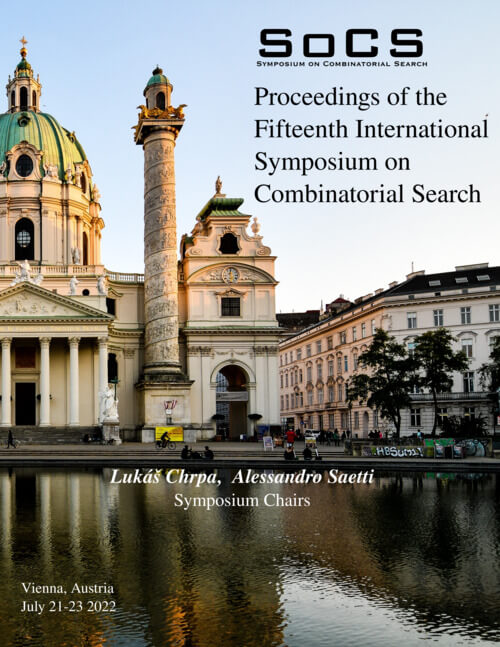When to Commit to an Action in Online Planning and Search
DOI:
https://doi.org/10.1609/socs.v15i1.21755Keywords:
Meta Reasoning And Search, Real-time Search, Combinatorial Puzzles, Problem Solving Using SearchAbstract
In online planning, search is concurrent with execution. Under the formulation of planning as heuristic search, when a planner commits to an action, it re-roots its search tree at the node representing the outcome of that action. For the system to remain controlled, the planner must commit to a new action (perhaps a no-op) before the previously chosen action completes. This time pressure results in a real-time search. In this time-bounded setting, it can be beneficial to commit early, in order to perform more lookahead search focused below an upcoming state. In this paper, we propose a principled method for making this commitment decision. Our experimental evaluation shows that our scheme can outperform previously-proposed fixed strategies.Downloads
Published
2022-07-17
Issue
Section
Long Papers

